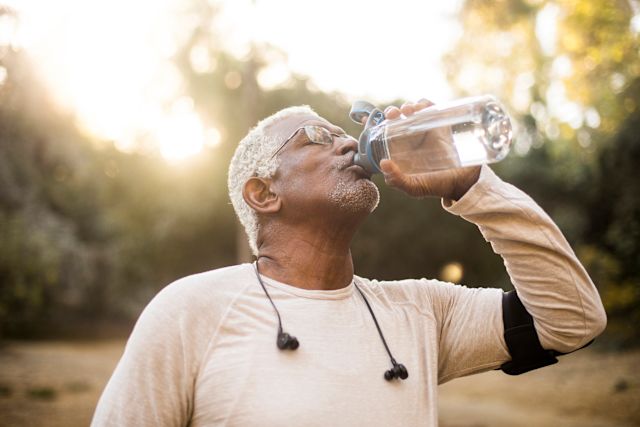Updated on September 19, 2025.
Multiple myeloma (MM) is cancer that occurs when plasma cells develop changes that become cancer. Plasma cells are a type of white blood cell that are mainly found in bone marrow. They make substances called antibodies that fight infections.
When plasma cells develop into cancer, they crowd out other types of blood cells in the bone marrow. This can lead to a decrease in red blood cells (which carry oxygen throughout your body) and white blood cells (which help fight infection). MM can also form tumors in the bones and produce abnormal proteins. All of this can lead to a number of complications, including anemia (low red blood cells), infections (caused by low numbers of white blood cells), broken bones, and kidney problems.
While there is no cure, there have been major improvements in MM treatments over the years. These can help manage the disease.
Risk factors for MM
The cause of MM is unknown, though there are a number of known risk factors. A risk factor is something that increases the chances of developing a medical condition. Many of the risk factors for MM are beyond a person’s control. These include:
- Age: A person’s risk of developing MM increases with age. Most people diagnosed with MM are ages 65 and older. However, it does occur in younger people.
- Sex: MM is slightly more common in males.
- Family history: People who have an immediate family member with MM such as a mother, father, brother, or sister are slightly more at risk for developing MM. However, MM does not appear to be a hereditary disease that is passed down through families.
- Medical history: People who have a history of other diseases that affect plasma cells are at increased risk for developing MM.
- Race: MM is much more common among Black people than it is among white people.
Additionally, being overweight or obese increases a person’s risk of developing MM. Since strategies like eating a healthy diet, getting regular exercise, and working with a healthcare provider (HCP) may help manage weight, this is considered a risk factor over which you may have some control.
It’s important to remember that these risk factors only slightly increase a person’s chance of developing MM.
Controlling what you can
If you've been diagnosed with MM, you can take steps to help improve your health and sense of control. These include the following.
Exercise
Getting regular exercise as you are able can boost mood, reduce fatigue, and improve overall quality of life. Exercise does not have to be strenuous. Talk to your HCP about what types of exercise are safe for you.
Seek follow-up care
Because there is no cure for MM and relapses are common, it is very important to keep up with your appointments. MM requires regular monitoring. Your HCP also need to know about your symptoms and any side effects from treatment.
Join a support group
It can be helpful to talk to other people who share your diagnosis or a similar diagnosis. Contact your local hospital or healthcare center and ask about cancer support groups or consider participating in an online support group.
Make time for yourself
Living with cancer can be mentally and emotionally demanding, and it is important to take time for yourself. Find time to do something relaxing or enjoyable each day, whether it’s read, keep a journal, meditate, spend time on a hobby, or listen to music.
Remember nutrition
Your appetite and nutritional needs may change as a result of cancer and cancer treatment. Talk to your HCP about what foods you need and how to cope with changes in appetite.
For further questions about support while living with MM, how it is treated, and what costs your insurance may cover, speak with your HCP.







